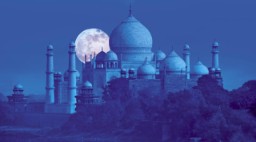Attractions

Taj Mahal
The majestic beauty of the Ivory-white Taj Mahal remains in your mind forever

Forts and Palaces
The royal architecture of India is a reminder of the bygone eras, mystical kingdoms & rulers

Kumarakom Backwaters
The leisure of houseboat and marine life

Hill Stations
Delightful summer getaways endowed with pleasant climate and natural beauty
Destinations

Hampi
The abode of bygone ruins, rusty colors and fascinating landscape

Srinagar
At the bank of river Jhelum, amidst the bright pink almonds and promising maples, resting in its houseboats, is this city.

Gangtok
Gateway to Sikkim

Kochi
Sun, sand, sea and festivals for your mind, body and soul
Also Check

Adventure
India is a home to many exquisite wildlife and bird sanctuaries. One can have an adventurous trip while visiting these places. There’s so much more to discover like - water sports in still waters like boating, rowing, river rafting. Visitors flock in here in huge numbers every year to experience the natural flora and fauna, along with the wildlife. These wildlife reserves, are adventurous as well, they host all sorts of animals and migratory birds. A walk down these places will definitely make you experience the utmost adventure. Places in India can certainly leave anyone in awe of the world. Everything to plan to explore on your trip is available in India.

Spiritual
The flourishing structures in the form of temples, mosques, churches, gurdwaras, monasteries of different religions, cultures and faiths is the wealth of Indian tourism.

Heritage
Visiting heritage sites in India and partaking in the amalgamation of its diverse culture is an experience that will be embedded in your mind forever.

Yoga and Wellness
Yoga is the science of achieving absolute union with the divine. The term ‘Yoga’ is derived from the Sanskrit root ‘YUJ’, meaning ‘to join’ or ‘to yoke’ or ‘to unite’.



